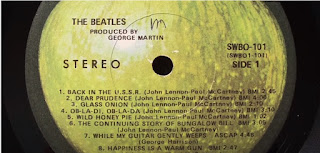Sometimes people seem to think historians can figure out exactly what actually happened in history.
They can’t.
A better way to understand the pursuit is in terms of probabilities.
That’s why I support the approach of multiple working hypotheses. We can assemble known historical facts, separate out assumptions, inferences, biases, traditions, etc., and then derive a variety of working hypotheses, or explanations, to which people can assign probabilities according to their own life experience.
At least during mortality, we will never know what actually happened.
Think about it: we don’t even know who played the drums on the Beatles’ 1968 song Dear Prudence, despite detailed analysis by experts. https://www.youtube.com/watch?v=ptAmOYIFIx8&t=631s
In a brilliant essay that everyone should read, LDS historian Richard Bushman explained the challenge of interpreting historical events.
it is disconcerting to observe the oscillations in historical fashion and to recognize how one’s own times affect the view of the past. Anyone unfamiliar with the writing of history may wonder why historians are such vacillating creatures. Are not the facts the facts and is not the historian’s task no more than to lay them out in clear order? Why the continual variations in opinion? It seems reasonable that, once told, the story need only be amended as new facts come to light.
The reason for the variations is that history is made by historians. The facts are not fixed in predetermined form merely awaiting discovery and description. They do not force themselves on the historian; he selects and molds them. Indeed he cannot avoid sculpturing the past simply because the records contain so very many facts, all heaped together without recognizable shape. The historian must select certain ones and form them into a convincing story. Inevitably scholars come up with differing accounts of the same event.[1]
[1]Richard L. Bushman, “Faithful History,” in Dialogue, https://www.dialoguejournal.com/wp-content/uploads/sbi/articles/Dialogue_V04N04_13.pdf
Source: Book of Mormon Concensus

